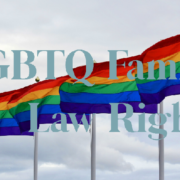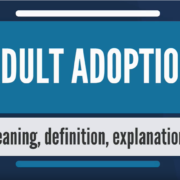Baby Veronica Adoption Case Decided By U.S. Supreme Court
I have previously written about the adoption case of Baby Veronica. In this case, a South Carolina court ordered a child to be taken from her prospective adoptive parents’ home and to be placed in her biological father’s home even though the father had abandoned the child and consented to the adoption. The court’s logic was that, because the child’s father was a member of the Cherokee tribe – and so Baby Veronica was a member of the Cherokee tribe – the Indian Child Welfare Act (“ICWA”) applied. Accordingly, the South Carolina trial court concluded, the prospective adoptive parents failed to prove that the adoption (i) was both in the child’s best interests and (ii) did not infringe on the rights of the Indian tribe. The South Carolina Supreme Court affirmed the trial court’s decision.
I wrote in July 2012 that the South Carolina Supreme Court should not have applied the ICWA because the father had abandoned the child, voluntarily waived his parental rights, and consented to the adoption. I also wrote that the case likely would have been decided differently by Florida courts.
Well, the prospective adoptive parents appealed this matter to the U.S. Supreme Court, and, as it turns out, the majority opinion agrees with me.
The U.S. Supreme Court reversed the South Carolina decision and remanded it for further proceedings. It concluded that the ICWA applies to cases where a parent’s rights are being involuntarily terminated rather than, as in this case, where a parent had voluntarily waived his or her rights and had never had custody to begin with. The Court also stated that the ICWA did not bar non-Indian parents from adopting an Indian child when no other eligible Indian candidates have sought to adopt the child.
Below are some excerpts:
Section 1912(f) conditions the involuntary termination of parental rights on a showing regarding the merits of “continued custody of the child by the parent.” The adjective “continued” plainly refers to a pre-existing state…The phrase “continued custody” therefore refers to custody that a parent already has (or at least had at some point in the past). As a result, s. 1912(f) does not apply in cases where the Indian parent never had custody of the Indian child.
***
Our reading of s. 1912(f) comports with the statutory text demonstrating that the primary mischief the ICWA was designed to counteract was the unwarranted removal of Indian children from Indian family due to the cultural insensitivity and biases of social workers and state courts…In sum, when, as here, the adoption of an Indian Child is voluntarily and lawfully initiated by a non-Indian parent with sole custodial rights, the ICWA’s primary goal of preventing unwarranted removal of Indian children and the dissolution of Indian families is not implicated.
***
Section 1915(a) provides that “[i]n any adoptive placement of an Indian child under State law, a preference shall be given, in the absence of good cause to the contrary, to a placement with (1) a member of the child’s extended family; (2) other members of the Indian child’s tribe; or (3) other Indian families.” Contrary to the South Carolina Supreme Court’s suggestion, s. 1915(a)’s preferences are inapplicable in cases where no alternative party has formally sought to adopt the child. This is because there simply is no “preference” to apply if no alternative party that is eligible to be preferred under s. 1915(a) has come forward.
***
The Indian Child Welfare Act was enacted to help preserve the cultural identity and heritage of Indian tribes, but under the State Supreme Court’s reading, the Act would put certain vulnerable children at a great disadvantage solely because an ancestor—even a remote one—was an Indian. As the State Supreme Court read ss. 1912(d) and (f ), a biological Indian father could abandon his child in utero and refuse any support for the birth mother—perhaps contributing to the mother’s decision to put the child up for adoption—and then could play his ICWA trump card at the eleventh hour to override the mother’s decision and the child’s best interests. If this were possible, many prospective adoptive parents would surely pause before adopting any child who might possibly qualify as an Indian under the ICWA. Such an interpretation would raise equal protection concerns, but the plain text of §§1912(f ) and (d) makes clear that neither provision applies in the present context. Nor do s. 1915(a)’s rebuttable adoption preferences apply when no alternative party has formally sought to adopt the child. We therefore reverse the judgment of the South Carolina Supreme Court and remand the case for further proceedings not inconsistent with this opinion.
If you are looking to learn more about Florida adoption and you wish to speak with a Florida adoption attorney, schedule a consultation with The Law Firm of Adam B. Cordover, P.A., by calling us at (813) 443-0615 or by filling out our online form.




Leave a Reply
Want to join the discussion?Feel free to contribute!